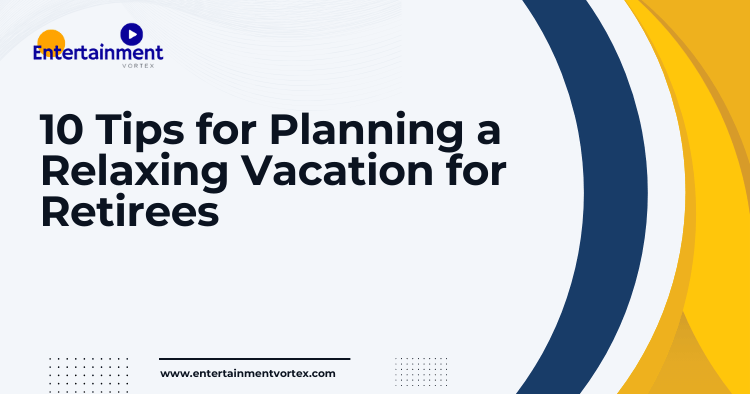Table of Contents
- Tip 1: Choose the Right Destination
- Tip 2: Plan for Comfort
- Tip 3: Consider Off-Peak Travel
- Tip 4: Schedule Relaxation Time
- Tip 5: Stay Active
- Tip 6: Explore Local Culture
- Tip 7: Prepare for Health Needs
- Tip 8: Travel Insurance
- Tip 9: Stay Connected
- Tip 10: Create Lasting Memories
Tip 1: Choose the Right Destination
Consider destinations that are known for their peaceful environments, such as beach resorts or countryside retreats.
Tip 2: Plan for Comfort
Make sure accommodations are comfortable and accessible, with amenities that cater to your needs.
Tip 3: Consider Off-Peak Travel
Traveling during off-peak times can help avoid crowds and make for a more relaxing experience.
Tip 4: Schedule Relaxation Time
Balance activities with downtime to recharge and enjoy the surroundings.
Tip 5: Stay Active
Incorporate gentle activities like walking or swimming to stay active while still relaxing.
Tip 6: Explore Local Culture
Take time to explore local attractions, cuisine, and traditions for a richer experience.
Tip 7: Prepare for Health Needs
Ensure you have access to necessary medications and healthcare facilities where you are traveling.
Tip 8: Travel Insurance
Consider investing in travel insurance for peace of mind while on your trip.
Tip 9: Stay Connected
Keep in touch with family and friends to share your experiences and stay connected.
Tip 10: Create Lasting Memories
Focus on experiences that you’ll cherish and remember long after the vacation ends.
Table of Contents
- Choose the Right Destination
- Consider Travel Timing
- Plan a Flexible Itinerary
- Focus on Comfort
- Look for Senior Discounts
- Include Leisure Activities
- Prioritize Health and Safety
- Pack Smart
- Stay Connected
- Seek Feedback and Plan Again
Planning a vacation for retirees can be an exciting yet challenging task. As they retire, many individuals seek the opportunity to relax and recharge, making it essential to create a vacation tailored to their needs. Here are ten tips to ensure a delightful and stress-free getaway.
1. Choose the Right Destination
Selecting a destination is crucial for a relaxing vacation. Consider places that offer tranquility, beautiful scenery, and easy access to services. Popular options for retirees include:
| Destination | Highlights |
|---|---|
| Sedona, Arizona | Scenic red rock formations and spas. |
| Charleston, SC | Historic charm and gentle coastal breezes. |
| Napa Valley, CA | World-class wineries and lush landscapes. |
| Savannah, GA | Beautiful parks and rich history. |
| Asheville, NC | Vibrant arts scene and stunning mountain views. |
Research the climate and local activities to ensure it aligns with your interests. Websites like TripAdvisor can help you explore reviews and suggestions.
“Choosing the right destination can make all the difference. Look for places that resonate with your interests and offer plenty of opportunities to unwind.”
2. Consider Travel Timing
Timing can significantly impact the vacation experience. Avoid peak seasons, which can mean crowded places and inflated prices. Instead, consider traveling during the shoulder seasons when the weather is pleasant, and tourist spots are less busy. For example, visiting beach destinations in late spring or early fall can offer serenity and relaxation.
“Traveling off-peak not only saves money but also enhances your overall experience, allowing you to enjoy destinations without the rush.”
3. Plan a Flexible Itinerary
While planning is essential, flexibility is key to a stress-free vacation. Create a loose itinerary allowing for spontaneous adventures or downtime. Include a mix of planned activities, such as:
- Morning walks or yoga sessions
- Afternoon visits to local attractions
- Evening relaxation at the hotel or resort
This approach ensures that the vacation remains enjoyable and not overly scheduled.
“Remember, a rigid schedule can lead to stress. Allow time for relaxation and unexpected discoveries.”
4. Focus on Comfort
Comfort should be a priority when planning accommodations. Look for hotels or rentals that offer:
- Accessible facilities
- Spacious rooms with comfortable bedding
- Amenities like pools and lounges
Consider options like vacation rentals through Airbnb or VRBO for a homier feel.
“A comfortable stay can greatly enhance your vacation experience, making it easier to unwind and enjoy your surroundings.”
5. Look for Senior Discounts
Many travel companies and attractions offer discounts specifically for seniors. Researching these can lead to significant savings. Websites such as AARP Travel provide information on discounts for flights, hotels, and attractions. Always ask about available discounts when booking.
“Every little bit helps! Be sure to inquire about senior discounts that can make your travel budget go further.”
6. Include Leisure Activities
Vacations should include activities that promote relaxation. Consider incorporating:
- Spa treatments
- Scenic nature walks
- Gentle yoga or meditation classes
These activities can enhance the overall experience and encourage relaxation throughout the trip. For more ideas on hobbies that promote relaxation, check out top 10 stress relief hobbies to boost well-being.
“Incorporating leisure activities can transform your vacation into a rejuvenating retreat.”
7. Prioritize Health and Safety
Health and safety should be a top priority, especially for older adults. Here are some considerations:
- Travel Insurance: Ensure you have comprehensive travel insurance in case of cancellations or medical emergencies.
- Health Precautions: Check for any necessary vaccinations or health advisories for your destination.
- Emergency Contacts: Keep a list of local emergency numbers and medical facilities handy.
Resources like the CDC Travel Health Notices can provide valuable information.
“Safety first! Make sure all health precautions are taken to ensure a worry-free getaway.”
8. Pack Smart
Packing efficiently can alleviate stress. Here are some tips:
- Pack Light: Bring only essentials to avoid carrying heavy luggage.
- Comfortable Clothing: Choose breathable and comfortable outfits suitable for various activities.
- Medications: Ensure all medications are packed, along with a list of prescriptions.
Creating a packing checklist can ensure nothing essential is forgotten.
“A well-organized packing strategy helps you travel with ease and makes the journey more enjoyable.”
9. Stay Connected
Staying connected with family and friends can enhance the vacation experience. Consider:
- Setting up regular video calls
- Sharing vacation photos on social media
- Using messaging apps to stay in touch
This connection can provide comfort and joy while away.
“Sharing your experiences with loved ones can add to your joy and make your vacation even more memorable.”
10. Seek Feedback and Plan Again
After returning from the vacation, take some time to reflect on the experience. What worked well? What could be improved? Gathering feedback can help in planning future trips. Encourage open discussions about favorite moments and any aspects that could be enhanced for next time.
“Every trip is a learning experience. Use insights from this vacation to make your next one even better!”
FAQs
What is the best time of year for a relaxing vacation for retirees?
The ideal time often depends on the destination. However, late spring and early fall are typically great for pleasant weather and fewer crowds.
How can I ensure accessibility during our trip?
Research accommodations and activities that cater to accessibility needs. Websites like Accessible Travel offer resources for planning.
Are there travel insurance options specifically for seniors?
Yes, many travel insurance companies provide plans tailored for seniors. Look for plans that cover pre-existing conditions and offer adequate medical coverage.
By following these ten
Section 1
This is the first section.
Subsection 1
This is a subsection under Section 1.
Section 2
This is the second section.
Subsection 2
This is a subsection under Section 2.
Section 3
This is the third section.
Subsection 3
This is a subsection under Section 3.






